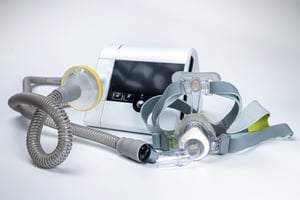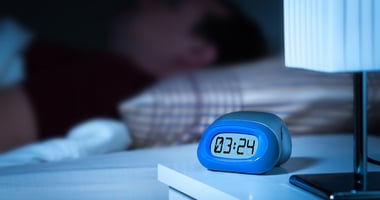Obstructive sleep apnea (OSA), a condition in which the soft tissues of the throat relax and narrow...
Obstructive Sleep Apnea May Increase Depression, Anxiety Risk
 |
Jong-Yeup Kim, M.D., Ph.D., and colleagues at Konyang University in Korea analyzed the health records of 985 adults from the Korea National Health Insurance Service–National Sample Cohort in South Korea database. Between January 2004 and December 2006, 197 patients were diagnosed with OSA. The researchers matched these patients with 788 patients of similar age, sex, income, and more who were not diagnosed with OSA to compare diagnoses of affective disorders between the two groups over the follow-up period.
Over nine years of follow-up, patients who were diagnosed with OSA were nearly three times as likely to develop a depressive disorder and nearly twice as likely to develop an anxiety disorder than those who were not diagnosed with OSA. Women with OSA were more likely to develop these conditions than men.
Kim and colleagues cited prior research of possible reasons why risk of depression and anxiety may be higher in people with OSA, including reduced oxygen saturation (how much oxygen is attached to red blood cells) and increased daytime sleepiness.
“Further studies appear to be needed to validate [our] findings and explore possible underlying mechanisms,” they wrote. “Clinicians may consider taking specific precautions to reduce the risks of development of depressive or anxiety disorders among patients with OSA.”
For related information, see the Psychiatric News article “Overlapping Symptoms Complicate Diagnosis, Treatment of Psychiatric and Sleep Disorders” and the Journal of Neuropsychiatry and Clinical Neurosciences article “Update on Obstructive Sleep Apnea: Implications for Neuropsychiatry.”
(Image: iStock/Ridofranz)
Follow Psychiatric News on Twitter!
And check out the new Psychiatric News Brief on Alexa-enabled devices.
And check out the new Psychiatric News Brief on Alexa-enabled devices.





